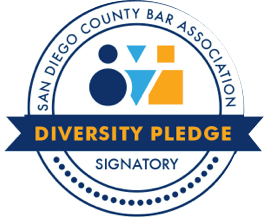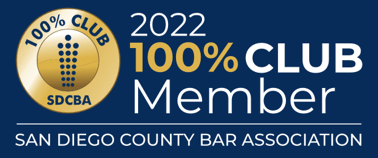Coalinga Lemon Law
- Home
- /
- Practice Areas
- /
- Lemon Law
- /
- Coalinga Lemon Law
Coalinga Lemon Law Attorneys
Coalinga, California, is a small city, especially in comparison to those on California’s coast. Coalinga’s location in the San Joaquin Valley and its distance from Salinas, however, make it an important stopping point for travelers. The Pleasant Valley State Prison and Coalinga State Hospital also draw in travelers and visitors.
Every day, both residents and visitors to Coalinga rely on their vehicles to provide safe, reliable transportation. Many Coalinga residents even come to enjoy their commute. A lemon vehicle, however, can turn an enjoyable experience into an ongoing headache.
If you’re facing ongoing vehicle problems, talk to an experienced Coalinga lemon law attorney today. The team at Wirtz Law APC is here to help.
Lemon Vehicle Statistics in Coalinga
Coalinga is part of Fresno County, where the California Department of Motor Vehicles (DMV) recorded nearly 900,000 vehicle registrations in 2021 alone. These included 570,474 registrations for passenger vehicles and 203,484 registrations for trucks of various sizes.
Not all registered vehicles are lemons. Yet some percentage of vehicles registered with the California DMV each year become the subject of lemon law settlements or lawsuits.
A study by the California Public Interest Research Group (CALPIRG) and fellow researchers discovered that between 2018 and 2021, approximately 7.4 million new vehicle registrations were made in California. During the same time period, just over 34,000 lemon law claims were filed in state courts. In other words, between 2018 and 2021, 0.45 percent of all newly registered vehicles became the subject of a lemon lawsuit.
This percentage seems quite low一but it doesn’t tell the whole story. Most lemon law claims don’t go to court. Instead, they are settled before a lawsuit is filed.
The numbers also don’t fully describe the risks that California vehicle drivers face from hidden defects. CALPIRG estimated that about 10,000 lemon law claims were filed in court in 2021 – but that same year, about 6.3 million vehicles on California roads had at least one defect that hadn’t been repaired.
The CALPIRG study also examined which automakers are most likely to be named in lemon lawsuits. Researchers found that some automakers faced more lemon law claims per vehicle sold than others.
For example, between 2018 and 2021, General Motors was named in one lemon law claim for every 78 vehicles it sold in California. Jaguar Land Rover North America was named in a lemon law claim for every 83 vehicles it sold in California. Fiat Chrysler Automobiles, Nissan North America, and Ford Motor Company also had relatively high rates of lemon law claims per vehicle sold.
Not all automakers had their names come up in lemon law claims so frequently. Toyota Motor Sales was named in only one lemon law claim per 2,029 vehicles sold, for instance. Nonetheless, any automaker may be identified in a lemon law claim – and so can a defect in nearly any part of a vehicle.
Problems With Lemon Vehicles
One of the challenges of dealing with a lemon vehicle is that issues can arise in nearly any part of the vehicle. In 2021, lemon law claims filed in California state courts named problems in dozens of vehicle systems, including:
- All-wheel drive
- Batteries
- Brakes and emergency braking systems
- Engine mounts and strut assemblies
- Fuel filters and injectors
- Power steering systems
- Seat belts
- Transmission control modules and clutches
Other vehicle parts and systems also appeared in these lawsuits. Problems can arise in any part of a vehicle – and some of these problems can threaten the life and health of drivers and passengers.
Understanding California’s Lemon Law
California’s lemon law began as part of the Song-Beverly Consumer Warranty Act, first passed in 1970. This law gave consumers certain rights when they purchased products that had hidden defects.
Between 1970 and today, California’s lemon law has gone through several changes. These changes sought to strengthen the law and expand its protections. Today, key elements of California’s lemon law include:
Vehicle Purchases and Warranties
California’s lemon law covers vehicles that are:
- Purchased or leased “at retail.” Most retail purchases are made from dealerships, but some are made directly from the manufacturer.
- Covered by an original manufacturer’s warranty or a certified pre-owned (CPO) warranty when the problems with the vehicle begin.
The lemon law applies as long as the issues occur during normal, expected use of the vehicle. Vehicles that develop problems due to misuse may not be covered under the lemon law.
“Reasonable Attempt to Repair”
The original Song-Beverly Consumer Warranty Act stated that manufacturers had an opportunity to make “reasonable number of attempts to repair” items before a lawsuit was filed. In the early years of California lemon law, automakers tried to push this rule to its limit. One auto executive testified that thirty or more repair attempts could be considered reasonable.
Today, automakers typically get far fewer than thirty tries to fix a lemon vehicle. While “reasonable number of attempts to repair” are based on the specific repair history, courts have held that as few as two attempts to repair may be sufficient.
Small Business Coverage
California lemon law has always covered vehicles purchased by individuals or households for personal, family, and household use. In 2000, the law was expanded to cover certain small businesses as well.
Today, a small business can seek protection under the state’s lemon law if:
- The problem vehicle has a gross vehicle weight (sometimes called a “curb weight”) under 10,000 pounds. This is the weight of the vehicle when it is empty.
- The business has five or fewer vehicles in total, including the problem vehicle.
Many Coalinga small businesses that rely on pickup trucks, vans, SUVs, EVs or small delivery trucks may be protected by this provision of the state’s lemon law. Business owners of all sizes can consult an experienced Coalinga lemon law attorney to learn more about their legal rights, whether or not they have a lemon law claim.
Protections for Military Service Members
In most cases, California’s lemon law applies only to vehicles purchased in the state of California. A California resident may not bring a lemon law claim if they bought their vehicle in another state, even if they live in California now.
One exception to this rule is for Californians who are active-duty military service members. These residents may bring a lemon law claim no matter where they purchased their vehicle as long as the other lemon law requirements apply.
Types of Compensation for Lemon Law Claims
Many Californians know that the state’s lemon law requires automakers to offer either a refund or a replacement vehicle. Yet the compensation the law provides doesn’t end there.
Three additional types of compensation created by California’s lemon law include:
- Incidental and consequential damages. These damages pay for expenses related to your vehicle’s problems – things you wouldn’t have had to pay if your vehicle had been reliable. Common losses in this category include towing bills. The cost of alternative transportation, like a rental car, ridesharing, or bus pass, also falls in this category.
- Attorney fees. If you win your claim, the automaker must pay your reasonable attorney’s fees in addition to other compensation.
- Civil Penalties. Civil penalties are additional damages over and above your actual damages. When an automaker willfully fails to follow the California lemon law, they may have to pay civil penalties to you up to two times the amount of your actual damages.
The attorney fee requirement helps many Californians get the experienced legal representation they need for a lemon law claim. If you win, the automaker pays your attorney’s fees. If you choose a lawyer who works “on contingency,” you will not pay attorney’s fees if you lose.
When talking to Coalinga lemon law attorneys, always ask how they are paid. Make sure you understand the terms before agreeing to be represented by a lawyer.
Arbitration and Lemon Law Claims
Automakers often push vehicle owners to bring claims to arbitration instead of to court. Some automakers, like Tesla, even include contract clauses requiring claims to go to arbitration. For Tesla, you can opt out of arbitration if you do it within 30 days of entering your purchase a contract.
In arbitration, a third-party arbitrator, who may not have any experience with California’s lemon law, hears both sides of a lemon law claim and then issues a decision. Both parties must follow that decision. There is no jury and there is no right to appeal.
Arbitration can be less expensive than a courtroom trial. Yet statistics demonstrate that vehicle owners are more likely to lose lemon law claims in arbitration, even if they have a valid argument. For this reason, never agree to arbitration without speaking to an experienced Coalinga lemon lawyer. Your attorney can help you determine whether arbitration is the best course of action for your specific case.
Our Practice
Over 97% Success Rate
In Lemon Law Claims
Wirtz Law did a fantastic job for me. They were able to recover much more than expected. I wouldn’t go anywhere else!





